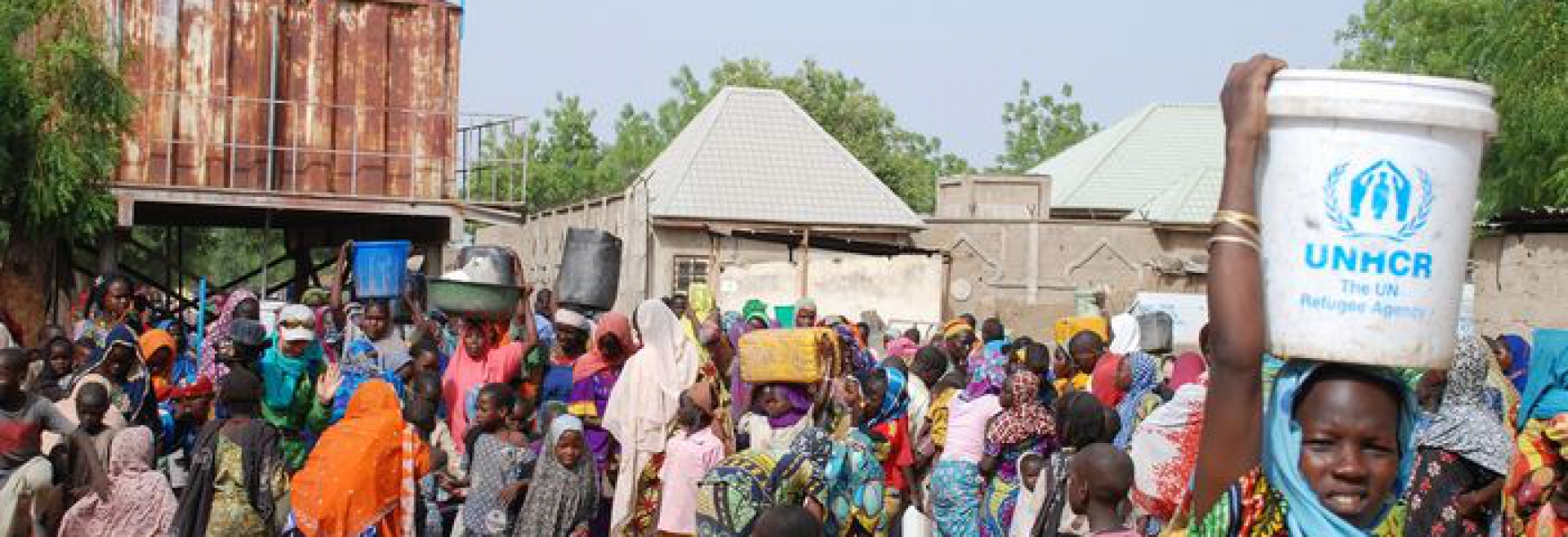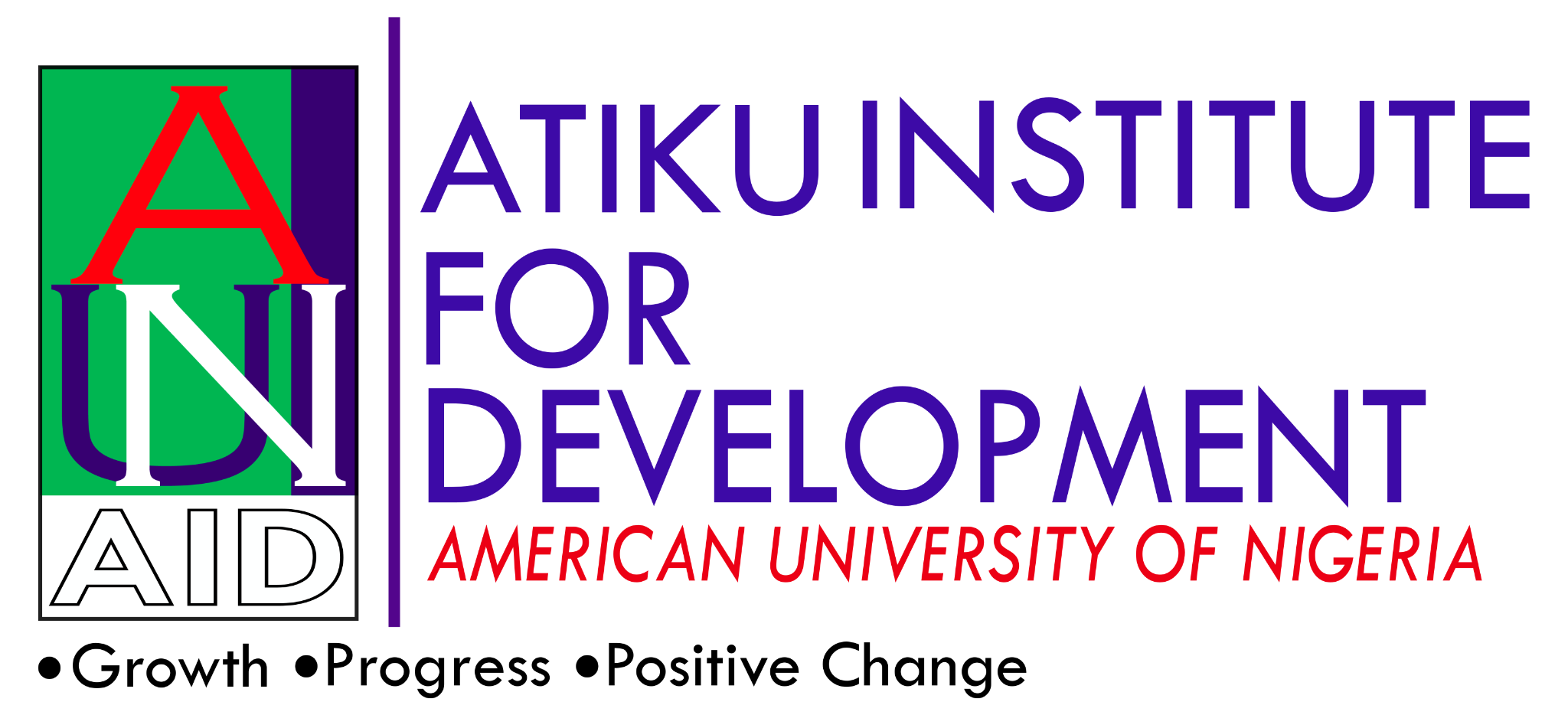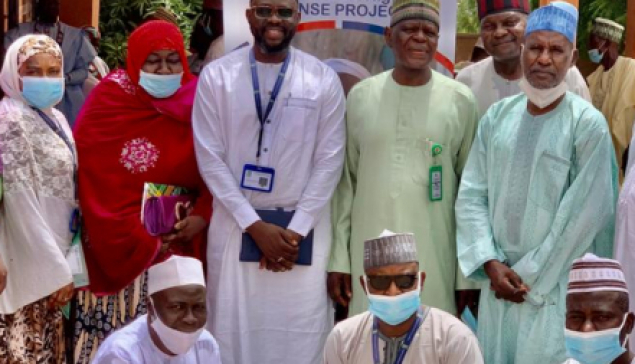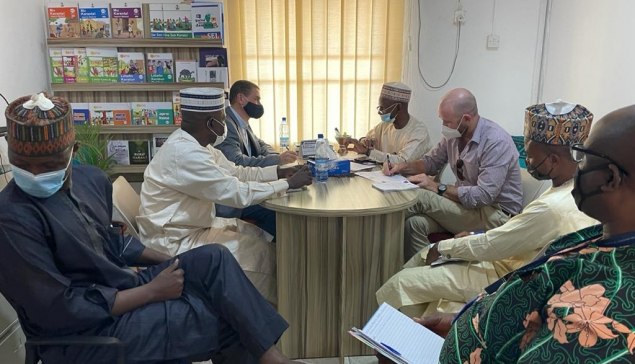
IDPs Laud UNHCR’s livelihood Support Programme
Some displaced persons in Bama town of Borno have commended the United Nations High Commission for Refugees (UNHCR), over the implementation of livelihood support programme in support of persons displaced by the ‘Boko Haram’ insurgency in the Northeast.
A cross section of the displaced persons told the News Agency of Nigeria (NAN) in separate interviews in Bama on Sunday that the programme assisted them to learn trades and engage in productive activities.
NAN reports that the livelihood programme is a critical component of the UN agency’s humanitarian intervention activities designed to build resilience and promote excellence and productivity among persons affected by the insurgency.
The programme focuses on empowering orphans, widows, female-led households and the vulnerable, to enable them realize their potentials and contribute to the social and economic development of the war ravaged region.
The programme is being implemented in Borno, Yobe and Adamawa states by the UNHCR , in partnership with the American University of Nigeria (AUN).
Bunu Bulama, 19, said he was trained on carpentry at the skills acquisition centre, established at the Internally Displaced Persons (IDPs) camp, Bama.
Bulama, an orphan, said that he was provided with assorted kits at the end of the training,which enabled him set up his business.
He said that he used part of the money generated from the trade to take care of his mother and four other siblings.
“I am into cap knitting before, but I was out of trade due lack of money to buy the needed materials.
“I am the eldest son in our household; life was miserable and difficult then as there was no body to take care of the needs of my family.
“I am happy now because I use the money I generate now to buy food items and consumables for my mother and sisters,” he said, adding that he also re-enrolled three of his sisters in school.
Another beneficiary, Sa-ede Adam, 18, said she received vocation training on tailoring at the UNHCR/AUN centre.
Recounting her ordeal, Adam said her parents were killed when the insurgents attacked their home at Darajamal village in Bama Local Government Area of the state.
Adam said she escaped with her younger brother and stayed for weeks in the bush, before they were rescued by the military.
“Now, I stay with my grandmother at the camp.
“I concentrated on my tailoring work; I am also saving money to go back to school. I do not want to get married now; my brother wants to study.
“I am grateful to the government and UNHCR for supporting us,” she said.
Another beneficiary, Falmata Modu, 30, said that she was also trained on tailoring.
Falmata, a widow and mother of four, added that she utilized the money generated from the trade to take care of her children.
Malam Abba Driver, a Community Leader at the IDP camp in Bama, lauded the gesture, saying it would go a long way in assisting them by enhancing their social and economic status.
Also commenting, the Project Manager in charge of the Programme, Mr Abubakar Mu’azu, disclosed that 1, 580 displaced persons received vocational training in 2018 under the UN agency’s livelihood support programme in Adamawa, Borno and Yobe States.
Mu’azu said over 1, 000 persons were trained on agricultural productions in Adamawa while 580 others received training on various trades in Borno and Yobe.
He said the beneficiaries were provided with starter packs at the end of the exercise to enable them set up their businesses.
Mu’azu listed the trades to include: tailoring; carpentry, welding, irons bending, electrician, ICT appreciation, cosmetology and soap processing, as well as beads, cap, shoe and bag making.
The manager explained that the beneficiaries were also trained on Financial Literacy and Business Development, to enable them manage their businesses and ensure sustainability.
“We also link the beneficiaries with micro finance institutions, to enable them access soft loans to enhance their businesses,” he said.
SOURCE: https://www.nta.ng/news/20181022-idps-laud-unhcrs-livelihood-support-programme/


